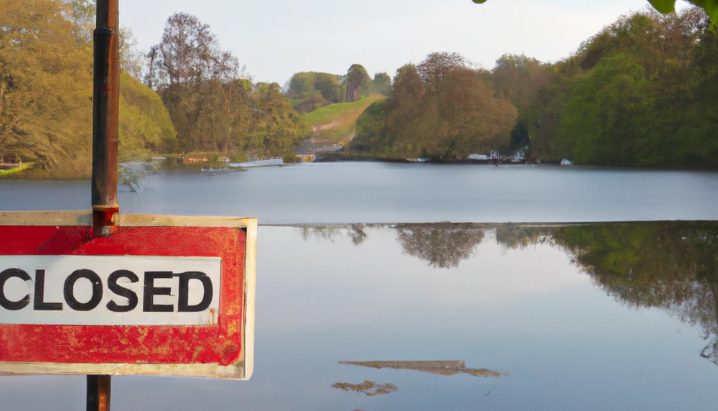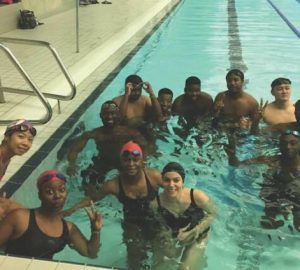
How do you stay a swimmer when swimming isn’t an option?
In a survey of more than 2000 people we did at Outdoor Swimmer last year, we asked: “How important is outdoor swimming to your sense of identity?” Only 6% of those surveyed said it wasn’t at all important. Most people who swim outdoors feel that it is part of their identity. It defines them. Swimming is not just something you do. Being a swimmer is something that you are.
In the UK, and in many other places, we now find ourselves in lockdown. Swimming pools are closed. We’re not allowed to travel to the sea or lakes. Unless you live close to a swimmable body of water (or have a private pool) and you’re prepared to tolerate chilly winter natural water temperatures, you can’t swim. This lack of swimming can feel like an attack on your identity.
From the same survey, we also know that more than 70% say outdoor swimming is essential or very important to their general sense of well-being. A similar number say the same thing about their mental health.
There are lots of good reasons for this. It’s not just the physical fitness that comes from regular swimming, although that is important (I hear swimmers saying things like “swimming makes me feel strong” or “swimming is my super-power”), it’s also the routine, the regular social contact and the daily sense of minor achievement you get from jumping out of bed early or doing something active.
The government is keeping vague about exactly how long this current lockdown will last. The indefinite nature of it makes the lack of swimming harder to cope with, so how can you protect your identity as a swimmer and, related to that, your physical and mental well-being? Here are some suggestions:
Any sort of swimming is better than none
I’m lucky to live close enough to the Thames to access it without breaking lockdown rules. At current temperatures, I can stay in the water for about 5 minutes. It’s not swimming in the sense of how I used to understand swimming. It doesn’t do anything for my fitness. I don’t even put my face in the water. Still, that connection with the water helps me to feel that I’m still a swimmer. If you have somewhere you can get in the water safely (and legally), I’d recommend it.
Try cold showers or baths
Many swimmers swear by this. Challenging yourself to do something potentially unpleasant involving water and overcoming your reluctance to get cold can give yourself a similar mental boost to a swim. We know some swimmers that put ice baths in their gardens.
Do something that supports your swimming fitness
If you swim often, doing regular shoulder and core strength exercises can reduce your risk of injury and help you swim faster. The trouble is, if you’re anything like me, they’re a lot less enjoyable than swimming and it’s easy to find excuses not to do them. Now is the perfect time to start and maybe create a new habit that will help your swimming when you get back to it.
Read books and magazines, listen to podcasts and watch films or webinars related to swimming
There are lots out there (not least Outdoor Swimmer magazine). Reading, listening and watching about swimming will inspire ideas for your own challenges and adventures once we get back to the water.
Make a list of swimming challenges or adventures you would like to do
Creating plans around swimming is a good way to remind yourself that you’re still a swimmer. It may also help with the motivation needed to do those exercises mentioned above.
Imagine a swim
This is a good one. Relax, close your eyes and imagine a swim you would like to do, or remember one you’ve done before. I do this about races sometimes and can feel the same flutter or nerves and excitement I get from actual races.
Don’t worry too much
Over the years, I’ve had a number of breaks from swimming due to work, travel and injury. I’ve always come back to it. While it takes time and patience to regain lost fitness, it does come back. You won’t forget how to swim. Your previous swimming technique and skills won’t have deserted you, although you may need to tune them up again. When swimming is in your soul, you’re still a swimmer, even if you can’t swim at the moment.
Picture (c) Katia Vastiau







